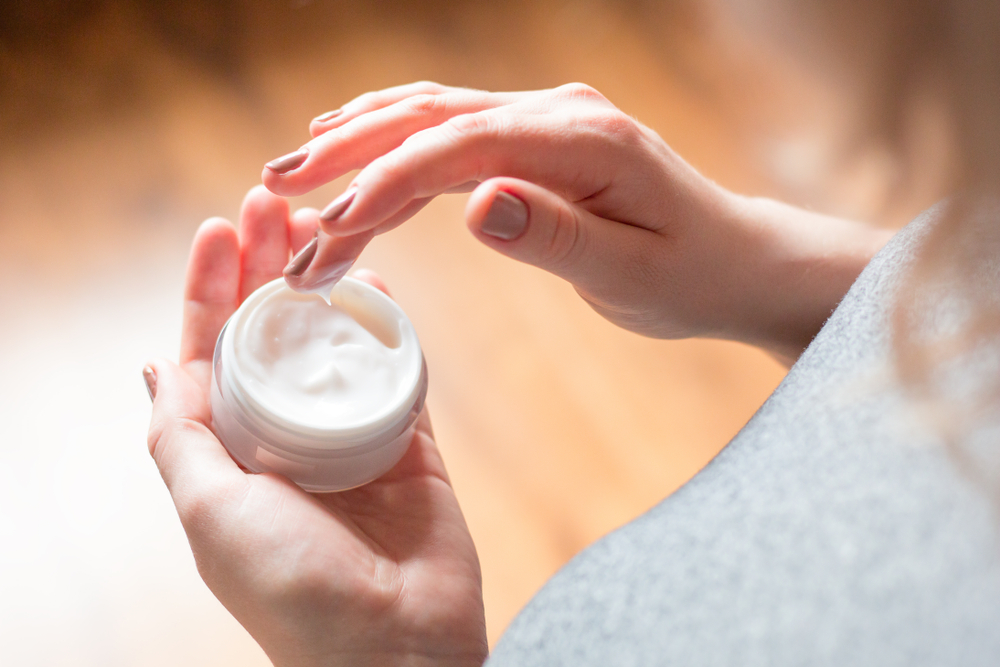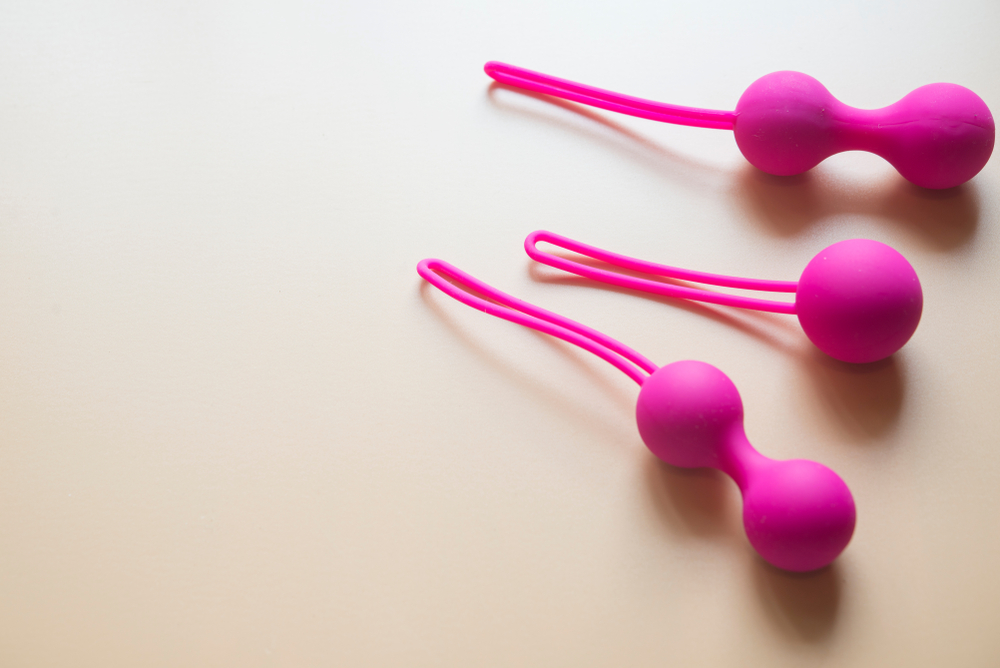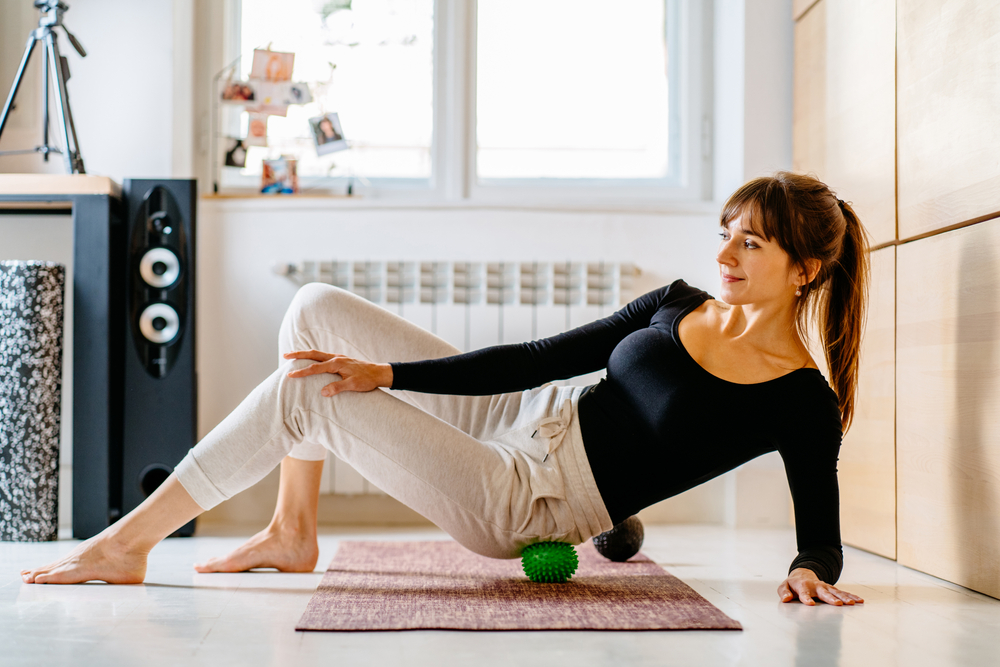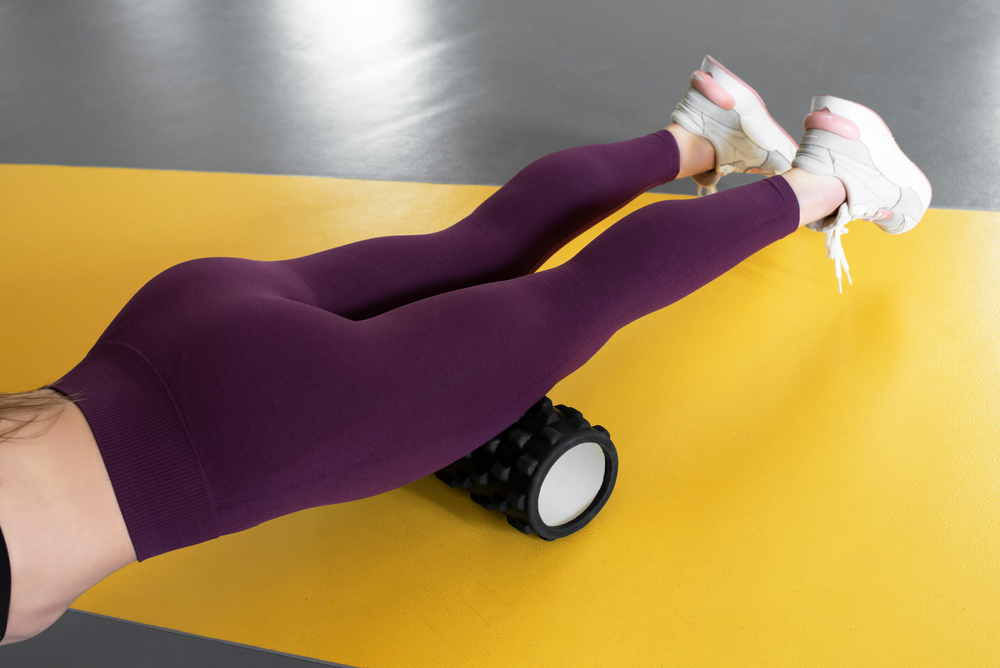Smell Fresh Down There - Natural Way to Always Smell Fresh & tighten using Lemon Water | Smell Fresh
Today, there are many people including you searching for “how to tighten your Vag with lemon juice”. This article addresses some fundamental truths about using lemon juice for vaginal tightening purposes which nobody will tell you.
Before we proceed, it is important to clarify some grey areas first.
Overstretching of your cervical muscles and vagina can give you a loose vagina. This can lead to the loss of sensitivity along the vaginal wall during sexual intercourse.
Such a woman will also find it rather difficult to get an orgasm. The condition can also lead to an increase in the weakness of the detrusor muscle, which is the muscle of the bladder, leading to bladder incompetence.
Your self-esteem may be negatively affected as a result of this and it can put a dent on your social life.
Childbirth is one of the major factors responsible for this problem in women. Delayed delivery and birth of a big baby are the major culprits.
Whatever the case may be, you can always find a solution to it. One of the best solutions includes the use of lemon juice.
Home Remedy For Vagina Tightening
You can go for vaginoplasty if you can spare the cash; this can be invasive or non-invasive. The procedure can help to tighten the vagina but it can cost a lot of money.
If you do not have the cash to spare for this, you can opt for home remedies to reverse the problem.
One of the most common home remedies people use for tightening the vagina involves the use of lemon juice.

Health Benefits of Lemon Juice
Lemon juice has so many benefits. Studies show that it can help in controlling systolic blood pressure. As a result, it can be used for treating high blood pressure.
Additionally, it can help relieve nausea and vomiting. However, care must be taken before you drink lemon juice especially in the early stages of pregnancy. Make sure you consult your doctor if you’re pregnant. It can equally be used in relieving arthritis and treating gastritis.
What is more, lemon juice can be used for treating a series of skin problems, including flaking, skin dryness, psoriasis, and so on.
If you want to get rid of body odor, lemon juice can also be used for this purpose. However, we are more concerned here with its ability to tighten the vagina.
Does Lemon Juice Really Tighten the Vagina?
The process of using substances such as lemon juice, vinegar, and some chemical substances is called “vaginal douching”.
Particularly, according to this research publication, the use of lemon juice as a vaginal douching agent is believed in some quarters to enhance sexual excitement through the sensations of warmth, tightness, and vaginal dryness.
That’s not all; the research also emphasizes the perception concerning the effectiveness of lemon juice in preventing sexually transmitted infections and restores the tightness of the vagina after delivery.
In addition, lemon juice also helps to prevent pregnancy as a potent contraceptive.
The answer to the question “does lemon juice really tighten the vagina” is “No”! It is important to point out that most of the claims are mere perceptions and not yet medically proven.
How to Tighten Your Vag with Lemon Juice
Many experts believe that lemon juice doesn’t really work to “tighten” the vagina. They argue that the vagina is naturally acidic and adding lemon (which is also acidic) may in fact affect the delicate muscular lining of the vagina especially if it’s more acidic than the natural environment of the vagina itself.
When applied to the vaginal wall, quite often the lemon juice will shrink up the muscles and narrow them. This is because lemon juice has a very strong astringent, acidic property.
The shrunken state of the vagina is what some users term “vaginal tightness”, which in fact is actually an irritation that may distort the natural architecture of the vaginal walls and result in negative health consequences.
Rather than use lemon juice or any harmful chemicals on your vagina, it’s better to resort to safer, healthier options to make your vagina tight. Read up on how to tighten your vagina overnight by exercise. You can also read the article on how to increase breast size in 7 days at home if you want to enhance your bust.
How Do People Apply Lemon Juice to the Vagina?
Most advocates who claim lemon juice works apply it to their vagina by using a swab soaked in the Lenin juice.
- They squeeze out fresh lemon juice into a container and dip a swab into it. Making sure, however, that the swab is clean.
- They often allow the juice to soak the swab and then dip it into the vaginal. They would hold the other end of the swab and move it along the wall of the vagina following an up and down motion.
- They apply it to the floor, roof, and sidewalls of the vagina in the manner described above. You can dip the swab into the lemon juice as many times as you need to.
Once a day application is ok and they apply the lemon juice daily until they start seeing their perceived results.
After some days of consistent application, the users would begin to perceive the vaginal wall tightening. Some people speed up the rate at which the wall tightens by applying the lemon juice two times per day, morning and evening preferably.
Conclusion
You came to read this article because you want to learn how to tighten your vag with lemon juice. And this article has addressed that including additional explanations regarding what the average user perceives after using lemon juice and also what most experts think.
However, it is important to maintain our earlier views that using lemon juice on your vagina can do more harm than good. Lemon juice is very acidic and may possibly damage your vagina and negatively impact your health.
Many experts believe that lemon juice doesn’t really work to “tighten” the vagina. They argue that the vagina is naturally acidic and adding lemon (which is also acidic) may in fact affect the delicate muscular lining of the vagina especially if it’s more acidic than the natural environment of the vagina itself.
When applied to the vaginal wall, quite often the lemon juice will shrink up the muscles and narrow them. This is because lemon juice has a very strong astringent, acidic property.
The shrunken state of the vagina is what some users term “vaginal tightness”, which in fact is actually an irritation that may distort the natural architecture of the vaginal walls and result in negative health consequences.
E.O Wilson, an influential biologist, said it eloquently…
As you age, you may notice a change in your vagina’s elasticity and your vagina may feel looser. Some women find symptoms worsen as they go through the menopause or after childbirth, particularly after having more than one baby. These changes are totally normal though and in most cases don’t require any treatment.
However, you might decide to have treatment if you’re bothered by these changes, particularly if:
- your vagina feels dryer
- sex is more painful
- sex is less satisfying
- you leak a little urine when you laugh or cough (symptoms of stress urinary incontinence)
If you’re concerned by changes to your vagina’s elasticity, there are a number of things you can try to improve your symptoms, including:
- pelvic floor exercises
- hormone treatments
- vagina laser tightening treatment
It’s best to speak to your GP or gynaecologist in the first instance if you’re concerned about any of your symptoms, particularly if you’re experiencing any pain in the pelvic area.
Although it’s normal to lose elasticity in your vagina, you may feel pressurised to do something about it because of all the vagina tightening advice and celebrity-endorsed products you see on the internet and in other media.
However, as much of this advice isn’t coming from medical professionals, it can be ineffective at best and dangerous at worst.
Vagina tightening home remedies may be tempting as they’re usually low-cost and easy to try yourself. However, you must approach them with extreme caution, as they can result in:
- infections (such as yeast infection)
- irritation
- itching
- injury—such as the case of a woman who gained second-degree burns after steaming her vagina1.
Below we take a closer look at these home remedies.
What are vagina tightening home remedies?
A vagina tightening home remedy refers to any household product you can apply to the inside of your vagina that will allegedly help to improve its ‘tightness’ and ‘cleanliness’. This includes herbs, spices and some foods.
The vagina has a natural way of cleaning itself and the bacteria inside it help keep the vagina’s pH balance at the right level. Inserting ‘tightening remedies’ into your vagina could upset this pH balance, which can cause infections such as thrush or vaginosis.
5 vagina tightening home remedies—don’t try these at home!
1. Herbs
For centuries, people have been using herbs to treat a huge range of medical conditions. However, this doesn’t mean it’s a good idea to put them in your vagina.
- Aloe vera
The gel inside the aloe vera plant is known for its lubricating properties and is used in some lubricating gels. But as it hasn’t been proven as a way to tighten the vagina, you shouldn’t apply it to your vagina without speaking to your GP or gynaecologist first.
- Witch hazel
Witch hazel is a shrub and its bark and leaves have long been used to treat inflammation. Applying witch hazel to a sanitary pad and cooling it is an effective way to ease the soreness of the vagina and vulva after childbirth2.
However, you shouldn’t apply witch hazel to the inside of your vagina. Indeed, you should always speak to your GP or gynaecologist before applying any product that hasn’t been prescribed or isn’t specifically designed for vaginal lubrication.

2. Chemicals
Although chemicals and vaginas are not a good mix, applying potassium alum to the vaginal walls has been touted as an effective home remedy. It’s said that the astringent properties of the chemical are good at tightening the vaginal tissue.
However, it’s really not worth the risk. Potassium alum can also cause scarring, increase the chances of infection, and absorb into your body, having toxic effects3.
3. Food
Food should be eaten, not put inside your vagina. Yet despite this sensible advice, everything from lemon juice and cucumber to garlic and yoghurt has been cited as a way to cleanse and tighten the vagina.
Below we take a look at two of the most popular vagina tightening home remedies—apple cider vinegar and lemon.
- Vinegar
Apple cider vinegar is the go-to tonic for everything from lowering blood sugar levels4 to helping with weight loss. It’s also been hyped as a way to tighten the vaginal canal.
However, because vinegar is very acidic, it could not only cause pain and irritation but also disrupt the natural balance of bacteria in your vagina5.
- Lemon
Lemon is said to make the vagina more acidic and lower its pH level. However, it can actually irritate the vagina and worsen urinary incontinence symptoms6.
4. Spices
It’s claimed that turmeric—or specifically the tuberous root of the curcuma comosa from the turmeric family—has a tightening effect when applied to the inside of the vagina and the vulva.
Although there has been a study into the effects of curcuma comosa, it was done on rats rather than people, and there is no research to say there are benefits to humans7.

5. Hot water
Douching (using water to ‘flush out’ the vaginal canal) or steaming (crouching over hot water so the steam can cleanse the genitals) not only risks upsetting the vagina’s pH balance but, in the case of steaming, could actually scold the vulva8.
Natural ways to tighten your vagina without surgery
Luckily you don’t have to rely on unproven and potentially dangerous home remedies (or surgery) to gain a tighter vagina. Below are two safer options for tightening your vagina and easing symptoms associated with vaginal atrophy and laxity.
Pelvic floor exercises
Strengthening your pelvic floor muscles is one way you can feel tighter and address issues such as stress urinary incontinence and lack of sensation during sexual intercourse.
The pelvic floor muscles are a sling-shaped set of muscles that extend from the front of your pubic bone to your pelvis. Although exercising them won’t tighten your vaginal canal (no exercise can do this as you can’t actively train the vaginal wall muscles), strengthening your pelvic floor can make the vagina feel tighter.
You can find out more about how to do pelvic floor exercises (including how to perform Kegel exercises) in our guide Vaginal exercises—what they are, how to do them and their benefits. Or, you can read more about the symptoms and causes of weak pelvic floor muscles here.
FemiLift vaginal tightening laser treatment
Vaginal tightening laser treatment is a non-surgical method that improves symptoms of vaginal dryness and laxity by stimulating the growth of new tissue on the vaginal walls. This painless treatment also helps to increase natural lubrication.
You can read more about FemiLift treatment in our guide FemiLift vaginal tightening laser treatment—what it is, the benefits and how much it costs.
The beneficial thing about your overstretched vagina is that it very well may be solidified. While there are various techniques that can be utilized to treat the issue, it is smarter to utilize the normal ones since they have no results. One of these characteristic cures is utilizing lemon juice. Indeed, you got it right. This post is an exhibit of How To Tighten Your Vag With Lemon Juice and revive the sexual rush you had before conveyance.
Vagina Tightening in Less than 5 Minutes!!
Do you discover sex less pleasant years subsequent to conveying a child? This could be brought about by a free vagina. During conveyance, the vagina overstretched to permit the child to pass. In spite of the fact that a vagina ought to normally return to its unique size, once in a while the pre-pregnancy snugness came to after conveyance. In the event that you have had a few conveyances, conveyed a huge child, or had deferred conveyance, the vagina is probably going to get extended considerably more.
However, it isn’t labor alone that can bring about overstretching of the vagina. Age, weight, medical procedure, pelvic radiation, and stress can likewise cause extension of the vagina muscles bringing about decreased joy when having intercourse and reducing confidence.
Do Using Lemon Work For Your Vag?
Lemon juice stands apart as an interesting vagina fixing item in view of its extraordinary properties. It contains in excess of 20 enemies of malignancy that help to forestall the improvement of carcinogenic cells. It additionally gives diuretic impacts, expands bile creation, and is known to help control systolic circulatory strain.
For quite a long time, lemon has been a typical item utilized by ladies for cleanliness. This is because of its exceptional properties – hostile to malignant growth compounds – that assist in forestalling the improvement of dangerous cells. It likewise helps in fortifying of the pelvic floor, henceforth, fixing your free vag that can be because of the accompanying occasions:
How To Tighten Your Precious"V.A.G.I.N.A" At Home Naturally! Safe|Simple|Easy | Uneek Oré
Labor
Age factor
Menopause
Past pelvic injury
Customary extreme exercise
Continuous lifting of weighty things
Past gynecological medical procedure
Most of us women suffer from the issue of a loose vagina at some point in our life. Loose vagina is a cause of concern since it makes it difficult for you to experience enhanced sexual sensations. However, to regain the tight vag, you need to employ methods that can effectively get it back to its pre-delivery tightness. So, how can you use lemon in this situation?
V-Tight Gel is natural vaginal tightening product can purchase through their Official Site.
Why Lemon Works for Vaginal Tightening?
For years, lemon has been a common product used by women for hygiene. This is due to its unique properties - anti-cancer compounds - that help to prevent the development of cancerous cells. It also aids in strengthening of the pelvic floor, hence, tightening your loose vag that can be as a result of the following events:
How to Use Lemon to Tighten Your Vag
Use Lemon Juice
Lemon juice can also help you contract your vaginal muscles due to its astringent properties.
How To Prepare & Apply Lemon Juice
- Prepare a mild solution of lemon juice in a basin, mixed with a tablespoon of honey.
- Using a clean towel, apply gently on your vaginal walls.
- Allow it to stay for 5 to 10 minutes and rinse off. Wash it off with warm water.
- Repeat this process daily until you start seeing results.
Douching
Vaginal douching with lemon juice can help you to enhance sexual excitement through sensations of vaginal dryness, tightness or warmth, as well as prevent sexually transmitted infections and restore and tighten your vag after delivery.
Benefits of Using Lemon to Tighten Your Vag
Precautions to Consider When Using Lemon to Tighten Your Vag
Does Lemon Have Any Side Effects?
Just like other natural remedies like Aloe Vera and Turmeric, using lemon for vaginal tightening does not have any side effects. Instead, it comes with multiple benefits when you use it moderately.
When Should I Use Lemon To Tighten My Vag
Alternative Tips To Tighten Your Vag
Final Advice
You don’t have to experience the insecurities that your loose vag is making you feel anymore. This is the time to get over the feelings of low confidence because lemon can help you to tighten your vag to a good extent without getting risky and painful surgery, however, if you want to take a serious step further towards tightening your vagina, once again enjoy sexual pleasure and regain confidence then we recommend you to use V-Tight Gel for faster and sure results, it has been a game changer for many women, it can help you too!.
How do you use lemon on your vagina?
Vagina is self-cleaning, but the vulva is not. Vaginal care is definitely important, but the right kind of vaginal care should definitely be your priority. Vagina is the inner canal inside your body, while the vulva is referred to the outer parts around the vagina. Clitoris, clitoral hood and inner and outer labia or vaginal lips together form vulva. Menstruation, use of sanitary napkins and other hygienic concerns make it essential to take steps for vaginal cleanliness. At the same time, it is important to not use products that disturb pH balance of the vagina. Using natural vaginal washes can is definitely the safer option. It keeps you from the chemicals that are most likely to be present in the numerous vaginal washes available in the market.
We speak to gynaecologist Dr Bandana Sodhi about vaginal washes and she recommends using a Betadine vaginal wash. "Take 1 tsp of betadine and dilute it with water. You can safely use this as a vaginal wash at home," she says.
Tightening Methods For Women | Victoria Victoria
She adds that keep yourself clean by bathing with mild cleansers. The betadine vaginal wash can be used in every 15 days for extra protection.
Also read: 6 Types Of Vaginal Discharge And What They Mean
Vaginal cleanliness: Following are other natural vaginal washes that you can make at home
1. Lemon leaves
Limonene is a compound in lemon leaves, which contains anti-microbial, antibiotic and anti-allergic properties. Lemon leaves can help in getting rid of foul odur. It can also help in cleansing the vagina. All you need to do is boil a few leaves in water, cool the mixture to room temperature and wash your vagina with it.
2. Aloe vera gel
Nearly anything related to the skin can be dealt with using aloe vera gel. Try getting access to freshly extracted gel from aloe vera leaf. Add 1 cup water and use it as your natural vaginal wash. Aloe vera gel vaginal wash can help in case of vaginal dryness as well.
6otlhok8
Aloe vera gel vaginal wash can help in keeping your vaginal clean
Photo Credit: iStock
Also read: 5 Vaginal Hygiene Tips You Must Follow Diligently
3. Yogurt
An effective natural remedy to clean vagina is by using yogurt, which is a probiotic. It can help in vaginal cleaning as well as getting rid of vaginal odour.
Before going ahead with any of these homemade vaginal washes, we recommend you to consult your gynaecologist. Getting expert advice is helpful in preventing unwanted outcomes and infections.
What is Vaginal Laxity || How to Tighten Loose Vagina || What You Need To Know about Vaginal Laxity
ALSO READ
5 Things Every Girl Should Know About Her Vaginal Health
5 Things Every Girl Should Know About Her Vaginal Health
Should You Be Using A Vaginal Wash?
Should You Be Using A Vaginal Wash?
Simply cleaning vagina with plain water can also help in maintaining its cleanliness and hygiene. Besides, you need to follow some basic hygiene tips like wearing washed, clean underwear every day, changing tampons and sanitary napkins every few hours depending on the flow, sterilising menstrual cups and wearing comfortable, cotton underwear to name a few.
aahn7238
Change sanitary napkins and tampons regularly during menstruation
Photo Credit: iStock
Also read: 5 Things That Can Lead To Vaginal Infections
PromotedListen to the latest songs, only on JioSaavn.com
(Dr Bandana Sodhi is a Senior Consultant in Obstetrics and Gynaecology at Moolchand Hospital.)
What can be used to tighten the Virgina?
There’s a common misconception about what happens to our bodies, and more specifically our vaginas, as we get older or as a result of having a baby. There’s this idea that we’re irreversibly weakened and that we need to turn to surgery or other unsafe means to try to put a bandaid on the problem.
The reality is that our muscles weaken over time, just like any other muscle in the body unless we have a strong pelvic floor training routine to keep us strong. For 43% of women, weak pelvic floor muscles result in sexual dysfunction, including vaginal dryness, anorgasmia, and laxity/looseness.
Best Natural Ways To Tighten your Vagina &Clean Unlock Under
Fortunately, that doesn’t have to be the case. There are several natural pelvic floor and vaginal “tightening” exercises to help women not just get back to the strength they are used to but rather achieve their strongest body ever.
Everything is easier with Kegelbell
Everything is easier with Kegelbell®
Find out what is possible with two weeks of use. Guaranteed.
Learn More
Natural methods vs. surgery vs. medication to “tighten” your vagina
Before we can address how best to “tighten” your vagina, it’s important to understand a second misconception at play. Namely, a tight vagina is not a healthy one nor an ideal. The ideal to aim for is to have strong muscles that can squeeze but also relax and release.
In reality, what most women really want when they use the word “tight” to describe it is to improve the squeeze and strength of the vagina. So to be clear, when I write about how to make your vagina “tighter,” I put the word in quotation marks since we now know that is a colloquial expression to describe strong, healthy pelvic muscles.
09:21
Kegelbell on FabFitFun Live Explains How to Use Their Unique Vaginal Weights
For example, a common surgical method used to tighten the vagina after childbirth is called the husband stitch. This essentially removes excess skin in an attempt to address laxity, but really it just makes the vaginal opening more narrow, but that doesn’t address the root problem. So after that kind of surgery, the skin and muscles can just be stretched or become lax. Even worse is the surgery itself that may result in cutting through nerves, which can leave one with pain or numbness or a combination of the two.
The 6 Best Natural Vaginal Tightening Tips To Try At Home
Vaginal rejuvenation surgery performed by a plastic surgeon is similar to the husband stitch technique. Still, even more muscle is cut into to artificially narrow the entrance to the vagina. Again, that creates a false sense of “tightness” as the true goal are muscles that can contract and release, and again, cutting into a sensitive part of the body can leave one with numbness or pain if there is nerve damage.
Pelvic mesh surgery, which is now considered high-risk by the FDA, tried to address weak pelvic floor muscles by inserting a mesh that was supposed to hold up the organs when the muscles were too weak to do so. Instead, many women ended up with life-long pain and side effects. A woman would be mistaken if she thought pelvic mesh would in any way make her vagina “tighter” or able to squeeze more, just the opposite. Since the hammock of muscles is interrupted with a piece of plastic, the woman loses the muscle’s integrity and loses the ability to squeeze.
How to “tighten” your vagina naturally, or rather strengthen it, is by strengthening the pelvic floor muscles responsible for generating the squeezing and sucking capacity of healthy and toned female genitalia. This can start as early as you want through kegel exercises and other natural pelvic floor strengthening solutions. Fortunately, there are many ways to make your vagina “tighter” that will keep you strong instead of just a short-term solution.
4 natural ways to keep it “tight” down there
Kegels
Kegels are free and medically proven to address several vaginal and pelvic floor problems, including how to “tighten” your vagina naturally. Think of Cardi B singing in W.A.P “I do a kegel while it’s inside” and why that movement gets a special mention in a song devoted to amazing vaginas.
Kegels are an exercise that consists of isometrically squeezing the pelvic floor muscles. Not only do they treat and prevent laxity/looseness, but also incontinence, prolapse, sexual dysfunction, and vaginal dryness.
Unfortunately, to maintain your pelvic floor muscles with kegels, it’s required to kegel at least three times a day every day, which can add up to 100 minutes a week. Not only that, but numerous studies have proven that most women can’t do them properly, even with instruction.
Vagina Tightening Different Ways
Pilates
Pilates is one of the few full-body exercises that can help tighten and strengthen the pelvic floor muscles. This is achieved by focusing on engaging the core muscles, including the abdominals and pelvic floor muscles, throughout the different movements.
While Pilates is a great way to support natural pelvic floor strengthening, the classes can be expensive. Unless the routine is consistent with an instructor who emphasizes pelvic floor exercises and guides one properly to focus on the pelvic floor, it may not provide enough strengthening to be effective when it comes to making your vagina “tighter.”
Buff Muff Challenge
This 28-day challenge is run by one of our favorite vagina experts, The Vagina Coach. She has created an app-based challenge to help change the way women workout for the better and create a healthy pelvic floor fitness routine.
This challenge is a great option for women who want to be proactive about strengthening their pelvic floor muscles.
Vaginal tightening ways and can kegels helps - Dr. Sangeeta Gomes
Kegelbell
For those wondering how to “tighten” your vagina naturally, Kegelbell is one of the fastest and safest ways to do it. Kegelbell is the first externally weighted way for women to strengthen their pelvic floor muscles and decrease laxity/looseness.
In muscle-building mode, women use Kegelbell five minutes, three times a week in the privacy of their own home or once a week in maintenance mode. Unequivocally, one’s vaginal squeeze becomes extremely strong as a result of holding in the insert much the way one gets strong bicep muscles with a kettlebell workout.
Not only is it the first externally weighted solution, but the Original Kit is also the heaviest vaginal weight kit on the market before adding the Extension Kit that doubles the weight further. Kegelbell is made with medical-grade ingredients and is comfortable to use, with the insert similar in size to a large tampon.
Learn more about how Kegelbell can tighten your vagina naturally →
tighten vagina
Avoid these ineffective (and sometimes dangerous) home remedies
When women are trying to figure out how to keep it “tight” down there, it’s easy to get distracted by all sorts of different “home remedies” to make your vagina tighter. The reality is that at best, these are ineffective, and at worst, they could be harmful to your body.
Top 10 Amazing LEMON Benefits you didn’t know about (uses and benefits of lemon)
When it comes to any sort of juices (lemon, apple cider, etc.) or herbs to tighten your vagina, we like to generally advise that it’s not healthy to put any chemicals that aren’t medical-grade inside your body.
Your vagina has a natural pH balance, and adding these sorts of intense substances can throw off your body’s natural way of self-regulating. Many of those so-called home remedies are very acidic. The herbal chalky wands/sticks are simply just irritating the tissues so that they get inflamed, which gives the illusion of a tighter vaginal canal when really the lining of the vagina becomes puffy with inflammation.
This is not the right way to approach the issue. Moreover, irritation certainly will not make intercourse more pleasant for the woman, nor would the pH imbalance those substances cause her long after applying the foreign substance.
Some women also wonder if just doing squats “tighten” your vagina. The reality is that most exercises and activities that we engage with cannot target the pelvic floor muscles. That’s why it’s so important to establish a routine that is specifically intended to strengthen the pelvic floor muscles.
Try the FDA registered Kegelbell to tighten your vagina naturally
While it’s not possible to just snap your fingers and instantly have strong pelvic floor muscles and great squeeze, Kegelbell is pretty close! By using Kegelbell just five minutes, three times a week for two weeks, we guarantee that you’ll see an improvement or your money back!
Kegebell was created to solve the gap in the market of effective ways for women to strengthen their pelvic floor muscles. So often, women turn to surgery or other unsafe solutions to address a problem that is actually quite easy to solve with the right tools.
Can I use lemon juice to tighten my Virginia?
People always want to know the most unusual object I’ve retrieved from a vagina.
HOW TO : TIGHTEN LOOSE VAGINA AT HOME ( be a virgin again)🍑
I’ll never tell.
One, because the woman involved could recognize herself and feel betrayed. Yes, some items are that unusual.
The other reason is that the unfortunate sequence of events that ends with a visit to my OB-GYN practice or the emergency room is almost always the unanticipated consequence of sexual experimentation. Lots of objects seem sexually adventurous until the moment one realizes they are not. And realizes that they are stuck.
Sexual experimentation with household items is nothing new, though the nature of the object has changed slightly to match the times — think along the lines of a progression from a soda bottle to a diet soda bottle to an energy water bottle to a Kombucha bottle — over my 25 years of practice.
Another change I’ve noticed in that time is the increased touting of various “natural” and “ancient” vaginal remedies with household items. The reasons could range from “vaginal maintenance” (a term that, as an expert, I struggle to further qualify) to the treatment of yeast infections to contraception to improving sex lives.
ADVERTISEMENT
HOW TO TIGHTEN YOUR V@GINA AT HOME WITH GROUNDNUT WATER | REGAIN WOMANHOOD AGAIN🍑
Continue reading the main story
There are two themes at play that seem simultaneously opposing yet complementary: that natural is best and that the vagina is so dirty, fragile or in need of nourishment (or all three) that it is one wrong pair of underwear or wet bathing suit away from complete catastrophe.
And this is how lemon juice (ouch), yogurt, garlic (double ouch), cucumber and oregano oil (super, mega ouch) are finding their way into vaginas worldwide. No, you are not reading a recipe for tzatziki sauce.
Many of these supposed natural therapies claim to have supporting science, although what is offered as proof is easily dismissed with a cursory knowledge of reproductive physiology. Lemon juice is recommended to acidify the vagina (it cannot). Yogurt is suggested because its bacteria could help repopulate the healthy, vaginal bacteria (commercial yogurts don’t have the right strains). Sea sponges are recommended for menstrual hygiene (testing has revealed they have bacteria and debris and they could introduce far more oxygen — a bad thing — into the vagina than a tampon or menstrual cup).
What is simultaneously fascinating and depressing is that these “newly discovered ancient therapies” are neither ancient nor effective. Instead they are the result of celebrity wellness sites, social media and even some doctors recycling material from health almanacs and digests that used to be found at the grocery store and repackaging their content under the guise of female empowerment.
What is science with its stodgy physiology and evidence-based medicine against the allure of the patient anecdote and the promise of a cure? Stories and confidence are what sells.
How to Tighten Your Vagina with Lemon Juice
Editors’ Picks
From the Hockey Rink, a Useful Reminder to Check for Skin Cancer
Wordle Is a Love Story
Tracing a Los Angeles Treasure: Its Glorious Sprawl of Sushi
Continue reading the main story
It’s possible that remedies like yogurt, garlic and so on were tried centuries ago as medicine, spermicide or sexual custom. But who cares if something was used historically if it has since been deemed ineffective or harmful? Blood letting for fever, mercury for vitality or syphilis, and animal dung as spermicide are all ancient medicinal practices, but that doesn’t mean we’re revisiting those therapies today.
In other words, all these so-called “ancient” sexual remedies were retired for a reason.
I get the allure. So many women are still uncomfortable speaking openly about genital health, and the internet offers privacy — not to mention community and validation. When all these needs are met, accuracy can seem secondary.
It is always best to see a health care professional for a diagnosis. We women do know our bodies, but there is so much crossover with symptoms that when women attempt self- diagnosis they are likely to misdiagnose more than 50 percent of the time. That’s worse than flipping a coin.
Natural ways to tighten vagina - Ms. Sushma Jaiswal
Researching symptoms and treatment options is always good, but to keep your internet hygiene in check (which requires far more effort than vaginal hygiene) these are the things that should send you screaming:
Run if the therapy is said to be “proven.” The degree to which something is supposedly “proven” to treat a medical condition is inversely proportional to the number of studies supporting that claim.
Run if something is being sold. Anyone selling a product is by definition biased, whether it is “Big Pharma” or “Big Natural.”
Run if the recommendation is homeopathic products. A recent study tells us that doctors who recommend homeopathy are more likely to deviate from standard medical guidelines. In other words they are more likely to practice bad medicine.
Run if the advice relies on testimonials. I would never tell my patient “Well Sarah S. said it worked for her!” Sarah S. is not the same thing as science.
How to Tighten your vagina natutally
Run if it involves inserting food vaginally for health reasons. This is nonsense.
Run if they recommend vaginal cleaning of any kind. For instance, I’ve been hearing about “vaginal steaming.” It’s well meaning, but woefully misinformed. If your bottom is sore, use a sitz bath.
It’s stunning that in this great age of information that can we have so much misinformation about our bodies and our sexuality. The internet has changed the speed at which we can acquire medical information, but certainly not the accuracy.
Dr. Jen Gunter is an obstetrician and gynecologist practicing in California. The Cycle, a column on women’s reproductive health, appears regularly in Styles.
What does lemon do to your Virginia?
Ladies, a healthy, feel-good, orgasm-rich vagina, starts with your diet. This healthy diet allows your vagina to be sensitive when it needs to be and be healthy inside and out for your and your partner. Here’s 15 foods you need to eat:
1. Not only are sweet potatoes a delicious alternative to traditional potatoes, they are also incredibly effective in the maintaining of good vaginal health. They are filled to the brim with vitamin A, a vitamin that contributes to making our uterine walls super strong, as well as encouraging the production of hormones that help us stay energized.
💦 How to Wash Your Vagina & Vulva | Dos & Don'ts | Wipes Soap Douching | Feminine Hygiene Routine
2. Lemons also support vaginal health as their acidic nature helps maintain the vagina’s healthy pH level. Antioxidants in this citrus fruit also help protect the cells from free-radical damage.
In addition, they work as an immune booster to help your body fight infection. Drink lemon water once or twice daily to help restore the pH balance in your body. To make lemon water, mix the juice of ½ lemon to a glass of warm water and add a little raw honey for taste.
3. Cranberry juice is great for improving your vaginal health. It helps balance the vagina’s pH level and its acidic properties help fight bacteria that cause UTIs, vaginal infections and other problems. To reap the benefits, drink a glass of unsweetened, organic cranberry juice daily. Those who like the tart flavor can even eat a handful of cranberries each day. You can opt to take cranberry tablets, but consult your doctor first.
4. You’d think garlic would have the opposite effect you’d want (smelly), but on the contrary, garlic is great for down there because it contains antimicrobial and antifungal properties that help prevent vaginal problems, such as itching, burning, odor, discharge and even UTIs. This pungent food also boosts the immune system, so your body is ready to fight off infection. Eat two to three raw garlic cloves on a daily basis. You can also add garlic or its paste to your dishes and salads. If you prefer to take garlic capsules, consult your doctor first.
Related:
"Nothing Tastes As Good As Weight Loss Feels" Dr. Ro at the BHM Summit
5. To combat vaginal dryness as well as itching and burning, include kale and other low-oxalate green vegetables in your diet. Kale is a rich source of vitamins A and C and helps improve blood circulation. In addition, it gives a boost to your immunity to help keep infections at bay. Add kale to your salad, vegetable juice or green smoothie. You can also cook it lightly and eat it as a side dish. Other green vegetables that are good for vaginal health include cabbage, celery and collard greens.
6. Eating Greek yogurt daily is great for maintaining vaginal health. It contains live and active cultures (Lactobacillus bacteria) that prevent disease-causing organisms from attaching to the vagina and produces chemicals like lactic acid that inactivate or kill other infection-causing organisms. It also helps maintain healthy pH levels in the body. According to a 2014 study published in the Archives of Gynecology and Obstetrics journal, lactobacilli help maintain normal urogenital health and play a key role in preventing bacterial vaginosis, yeast vaginitis, UTIs and sexually transmitted diseases. Eat 1 to 2 cups of probiotic yogurt daily. Other good probiotic foods that you can include in your diet are miso, kimchi, sauerkraut and kefir.
Tighten Vagina Naturally
7. The phytoestrogens in the soy product edamame help keep the vagina lubricated, which is very important to prevent dryness, itching and other problems. It also contains omega-3 fatty acids, protein and several vitamins and minerals that help your body cope with premenstrual as well as menopausal symptoms. Aim for consuming a half-cup of organic, unprocessed edamame on a daily basis. Other soy products that you can include in your diet are soybeans, soy milk and tofu.
8. Rich in phytoestrogens and high in omega-3 fatty acids, flaxseeds can also combat many vaginal issues. The phytoestrogens increase estrogen levels, which prevents vaginal dryness and other menopausal symptoms. In addition, the zinc in these seeds help treat vaginal dryness, itching and burning. Sprinkle about 1 tablespoon of ground flaxseeds on cereal, smoothies, yogurt, salads and juices. When eating flaxseeds, make sure to drink an ample amount of water for smooth digestion.
Related:
Not All Americans Are Eating Better
9. Your vagina is a mucus surface, same as the inside of your mouth, so the better hydrated you are, the better hydrated those membranes are going to be. And while some strong-smelling foods can translate into a stronger-smelling vagina, water can help bring things back to whatever is normal for you.
10. Avocado is another food that stimulates vaginal health. The healthy fats in avocado support healthy vaginal walls and keep it naturally lubricated. This helps prevent vaginal dryness as well as itching and burning. In addition, its vitamin B6 and potassium content support vaginal health. Make sure to eat avocado in moderation. Just one-fourth of an avocado daily is enough to reap its benefits. You can include this creamy fruit in your salad, sandwich or smoothie.
4 Vaginal Tightening Methods to Reclaim Your Confidence | Empowering Midlife Wellness
11. Yes, candy. Specifically the brand Good N’ Plenty. In 1998, Dr. Alan Hirsch of the Smell & Taste Research and Treatment Foundation in Baltimore wrote in his book Scentsational Sex: The Secret to Using Aroma for Arousal that the scent of Good & Plenty candy, especially when mixed with a cucumber perfume, sexually arouses women.
12. Almonds and pumpkin seeds are high in zinc, which helps combat itching and regulates the menstrual cycle.
13. Sweet and delicious, bananas (ha! not in that way—wink, wink) are also a good source of vitamins B6 and C, as well as manganese, potassium, biotin and copper.
14. Kimchi is another probiotic and it’s safe for those who may be lactose intolerant and can’t eat yogurt. Kimchi helps maintain your vagina’s PH levels to slightly acidic. Another plus to probiotics? They help ward off bad bacteria as well, keeping infections down there at bay.
How To Make Your Vag Tighter - 3 Simple Ways To Make Your Vag Tighter From Home
15. Broccoli may not be the hottest veggie on the block, but this research may change your mind. A study from 2007 found women who ate foods rich in the flavonoid kaempferol––like broccoli––saw their risk for ovarian cancer reduced by an incredible 40 percent!
As we age, some parts of our bodies don’t seem to work the way that they used to. It’s easy to write off some ailments as “just aging”, reasoning to ourselves that, “Well, this is just life now, I guess.” This reaction is even more common when it comes to our reproductive and sexual health.
For some, it’s because they’ve heard from other women in their lives that these things just happen, especially after childbirth or menopause, but for many more, it’s because of the embarrassing and private nature of the problems. No one wants to admit to problems down there or to have to ask a doctor about ways to make your vagina tight.
At this point, many women may be tempted to turn to Dr. Google — who, it turns out, does not actually have any sort of medical degree and should not be trusted. The vaginal tightening home remedies you may find on Google range from medically-sanctioned to downright horrifying, which is why you should consult your doctor first before trying any treatments for sexual or reproductive health problems.
Here are 3 popular vagina tightening home remedies that you should avoid at all costs:
Food of Any Kind

Food goes in your mouth. Nowhere else. Do not put any food items inside your vagina, period. Your doctor would never recommend this and any online resource or friend who does is sharing bad information.
People have long touted various food items as miracle cures for various vaginal maladies. Apple cider vinegar and lemon have been said to reset the acidity levels in your vagina and possibly tighten the vaginal walls. Because of their high acidity, both of these can cause major pain and irritation inside and around the vagina, vulva, and labia, and can even worsen incontinence. Lemon and lime juice also do not prevent the spread of HIV or other STIs, as some people claim.
Some people also use yogurt because of its low acidity, hoping to balance pH levels, tighten the vaginal canal, or replenish the good bacteria inside their vaginas. This is also nonsense. Yogurt does not carry the same strains of bacteria as those that make up your vaginal microbiome. In fact, most yogurts contain sugars that, when introduced, could cause or worsen yeast infections.
While eating well can have an overall effect on your vaginal health, there are no foods that can be eaten or inserted that can tighten your vaginal canal. Moreover, your vagina is a self-cleaning organ and does not need outside cleaning help. If you have an infection, your doctor can prescribe antibiotics.
Herbs and Spices
Your vagina is an organ, not a soup, so do not insert herbs and spices into it! Turmeric, a spice frequently touted as a miracle cure for everything from arthritis to cancer does have some health benefits but has not been shown to tighten the vagina when ingested or inserted. Inserting turmeric could lead to irritation.
A related plant, Curcuma comosa, shows up frequently in vagina-tightening marketing ploys as a proven tightening agent. However, these effects are far from proven! Curcuma comosa did lead to some tightening in rats’ uteruses in one decades-old study but has not been tested on, let alone proven to help human women.
Witch hazel and aloe vera are also often used as remedies for a wide range of ills. Some women prefer aloe as a natural lubricant, and while it may not be as harmful as some of the other items on this list, it does not offer any tightening effects and should not be applied internally without first consulting your doctor, especially if it contains anything other than 100% pure aloe, straight from the plant.
Similarly, plants like boiled gooseberries should not be inserted. At best, they will have no effect. At worst, they can cause damage like burns and tears if they’re too hot when inserted! In fact, you should always avoid using hot water near your vagina, including inserting or spraying hot water inside or squatting over steam baths. Hot water can scald the inside and outside of your vagina and vulva area and may introduce harmful bacteria.

Tightening products, pills, gels, and creams
It is also worth pointing out that there are plenty of products available that supposedly help you tighten your vagina, but they are simply scams that monetize your insecurities and feed you a placebo effect. There are no pills you can take orally that will help with the tightness of your vaginal walls or pelvic floor.
Similarly marketed tightening creams and gels are made of glycerin, just like some lubes — so not only do they have no effect on tightness or firmness, but glycerin has also been known to lead to yeast or bacterial infections. No thank you!
These products cannot help you with your genuine health concerns and, even worse, they prey on your insecurities to convince you that something is wrong with your body even when that’s not true.
What Should You Do Instead?
Consult a physician if you have any concerns over your sexual or reproductive health. If you’re wondering how to tighten your vagina naturally, the best option is pelvic floor exercises. You can get started with Kegels at home and they don’t cost you a dime.
These exercises strengthen the muscles in the pelvic floor, which supports your pelvic organs — uterus, bladder, rectum, and even your small intestine. It’s kind of like squats for your vagina! You can do these on your own, or you can see a pelvic floor specialist who can guide you and teach you pelvic floor exercises to bring home.
You can safely add vaginal weights to Kegels, too, which not only helps strengthen your pelvic floor muscles but can also lead to better and more dependable orgasms. Just be careful not to start with weights that are too heavy for you and to use the proper technique.
Vaginoplasty has seen a rise in popularity over the last several years, once again largely driven by insecurities over the tightness of vaginas. Vaginal tightening surgery may be the right option for you if you’ve had significant tearing and other major symptoms after giving birth. But any surgery, especially an invasive one in this area, carries significant risk and a heavy price tag along with it, so it’s not for everyone.
There are also non-surgical procedures available. Laser treatment like MonaLisa Touch is non-invasive and performed as an out-patient procedure and we use lasers to stimulate the collagen within the vaginal walls. This treatment helps fight dryness, loss of elasticity, incontinence, pain, and burning.
The fact is, you don’t have to resign yourself to a life of vaginal dryness, weakness, urinary incontinence, or painful and unsatisfying sexual experiences.
You should feel comfortable discussing your symptoms with your doctor, even if they are embarrassing or seem insignificant. If you don’t feel like your doctor will take your symptoms seriously, then you should find a new doctor you can trust. A good OB-GYN will help you understand your symptoms, look for the underlying causes, and guide you as you assess your options.
Do not try any home remedies you read about online without consulting with a medical professional first because often these remedies can do more harm than good. Just running a Google search for “how to make vagina tighter” is not likely to yield practical, healthy medical advice. Real, medically-approved remedies are available, from pelvic floor exercises to MonaLisa Touch laser treatments.
If you would like to achieve the remedies listed above, contact us at the office of Dr. Krinsky today. We have experienced and qualified staff who can help you get you on the right track for vagina tightening remedies.















No comments:
Post a Comment